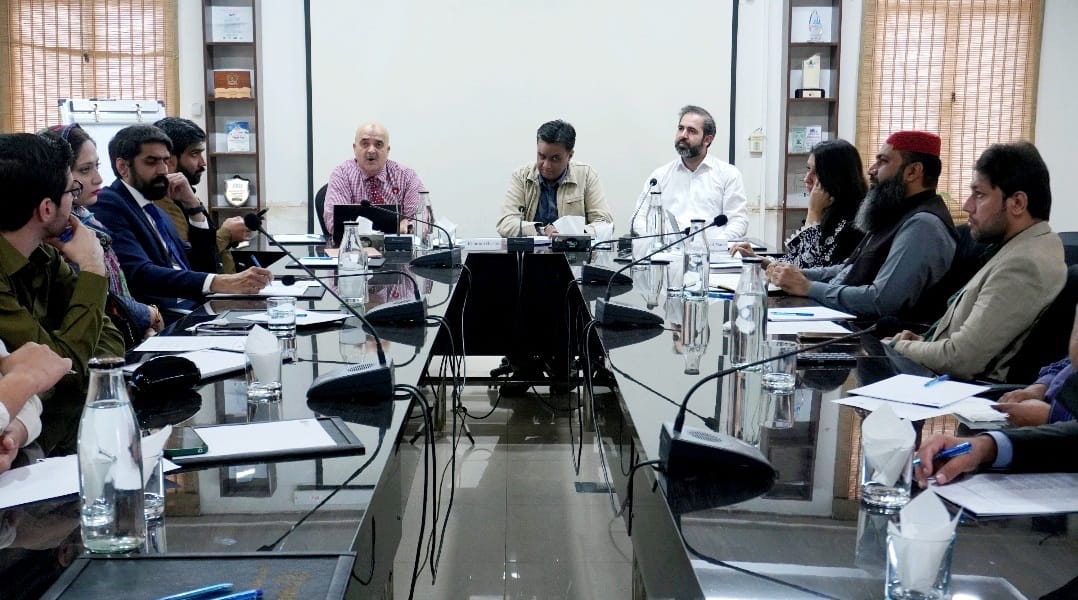Islamabad, Nov 19: At a seminar organized by the Sustainable Development Policy Institute (SDPI), experts emphasized the urgent need for a comprehensive and sustainable tobacco taxation policy to reduce consumption and improve public health in Pakistan. The seminar, titled “Taxing Tobacco: A Path to Reducing Consumption and Saving Lives”, called for stronger measures to address the gaps in the current taxation system.
Speakers highlighted the weaknesses in Pakistan’s existing tobacco tax system, particularly its two-tier structure, which allows the tobacco industry to undermine tax increases by preemptively raising prices. This manipulation dilutes the intended health benefits of tobacco taxes.
Additionally, the lack of taxation on smokeless tobacco products, such as Naswar, and the minimal regulation of nicotine pouches exacerbate the problem, creating loopholes that enable the industry to target consumers through alternative products.
The seminar served as a call for the development of a long-term, structured taxation policy that would encompass all tobacco products, reduce their affordability, and reduce health risks.
The discussions drew inspiration from global best practices, particularly the World Health Organization’s Framework Convention on Tobacco Control (FCTC) and the MPOWER framework.
Experts advocated for the introduction of health-specific taxes to fund public health initiatives, combat cross-border smuggling through regional cooperation, and expand the track-and-trace system to include exports and smokeless tobacco products.
Speakers also underscored the importance of aligning Pakistan’s tobacco tax rates with the WHO’s recommended target of 70% of the retail price, a goal that Pakistan has yet to meet.
Syed Wasif Ali Naqvi, Senior Research Associate at SDPI, stressed that tobacco taxation is an effective strategy for reducing tobacco use while generating revenue. He acknowledged the challenges posed by the lack of long-term policies and the influence of the tobacco industry.
Dr. Waseem Iftikhar Janjua pointed out the irrationality of Pakistan’s tobacco taxation system and called for a progressive tax policy that would make tobacco products less affordable. He emphasized the need for regular tax adjustments to account for inflation and highlighted the growing market for smokeless tobacco products and nicotine pouches, which remain largely unregulated. Dr. Janjua also stressed the importance of stricter enforcement to reduce the availability of loose cigarettes, which are often sold to young people at lower prices.
Mr. Asif Iqbal, an economist, advocated for a stable 3-5-year taxation framework to address the uncertainty of annual budget cycles. He also highlighted the widening tax gap between economy-tier and premium-tier tobacco brands and recommended gradual tax increases on economy-tier products to reduce disparities. He further stressed the need for stronger enforcement against illicit trade, which has contributed to the rise of low-taxed cigarette sales.
Mr. Khurram Hashmi, Senior Technical Lead at Vital Strategies, focused on combating the tobacco industry’s influence by highlighting the health and economic benefits of stringent tobacco policies.
He called for a unified approach among anti-tobacco stakeholders to influence budget deliberations and prioritize public health over industry profits through effective and equitable taxation measures.
The seminar brought together policymakers, public health experts, economists, and civil society representatives to discuss the need for evidence-based taxation to curb tobacco consumption and improve health outcomes.
The event also aimed to consolidate civil society recommendations for the upcoming budget and to strengthen efforts to counter the tobacco industry’s influence on policy decisions.
Pakistan’s current tobacco taxation framework remains inconsistent and politically driven, and the seminar stressed the need for strategic, long-term planning to address this issue.









